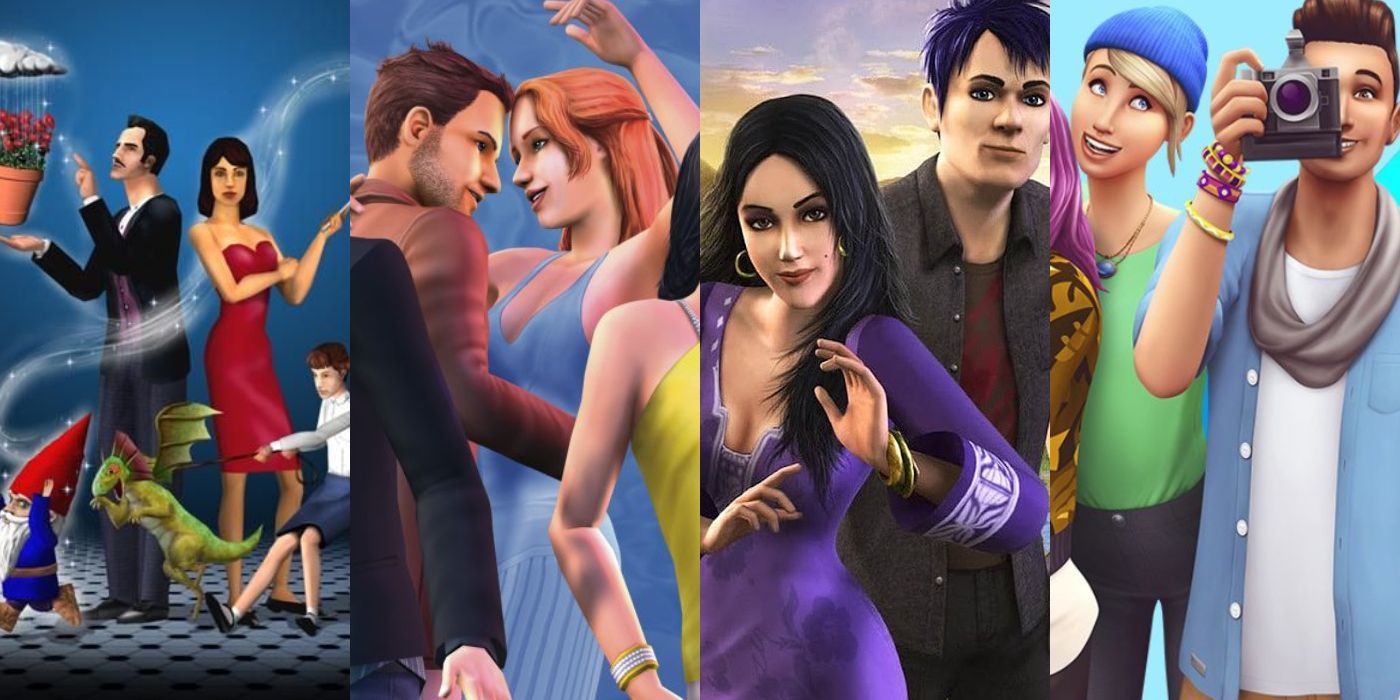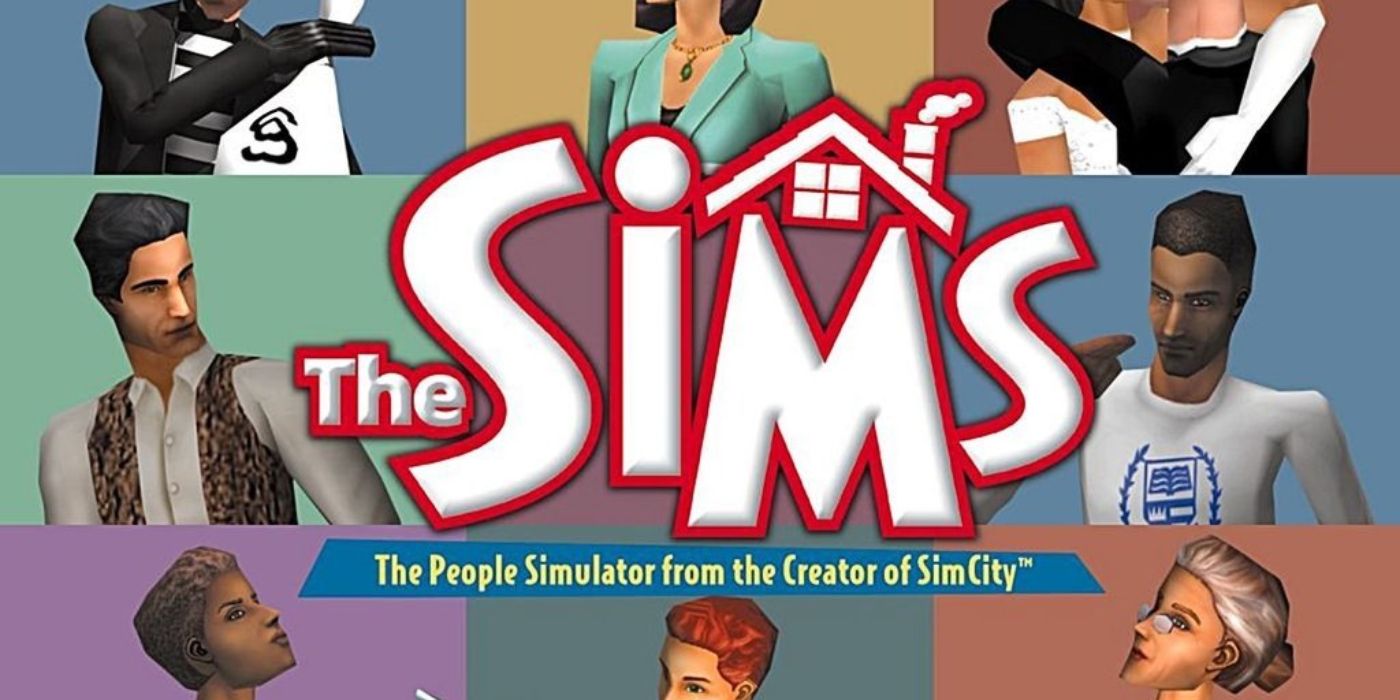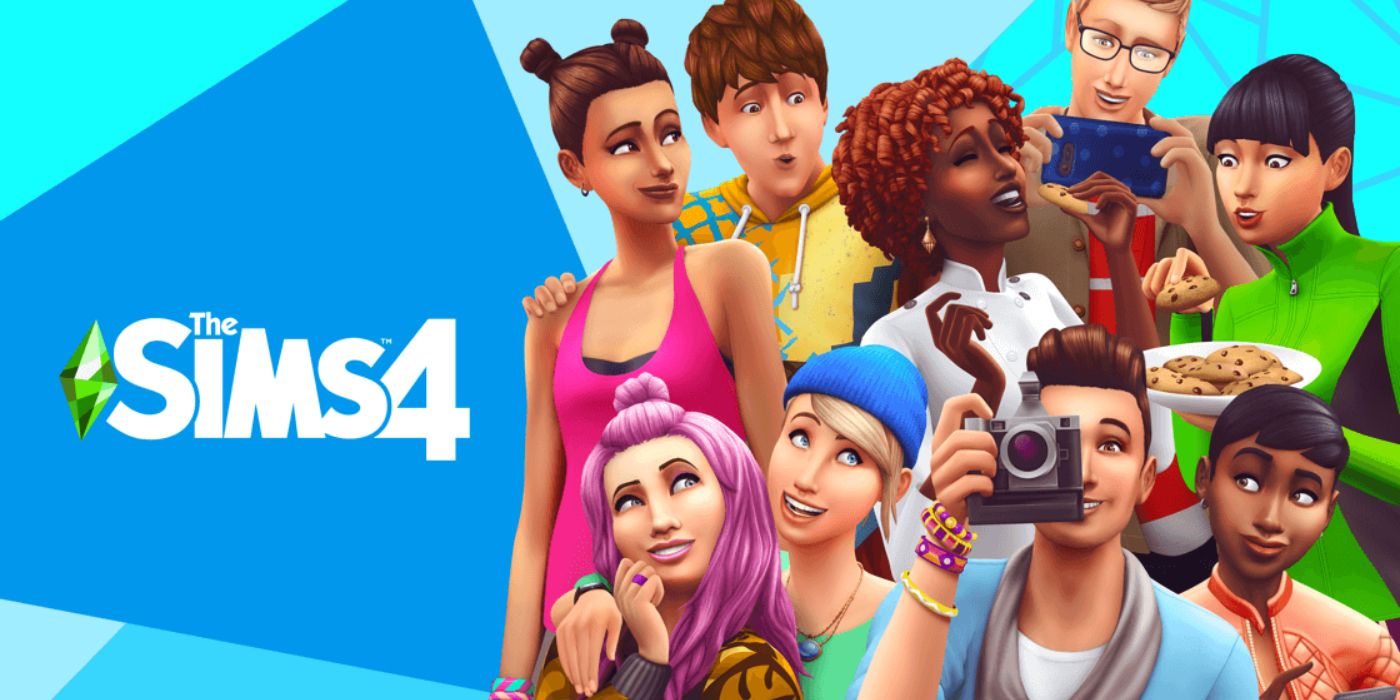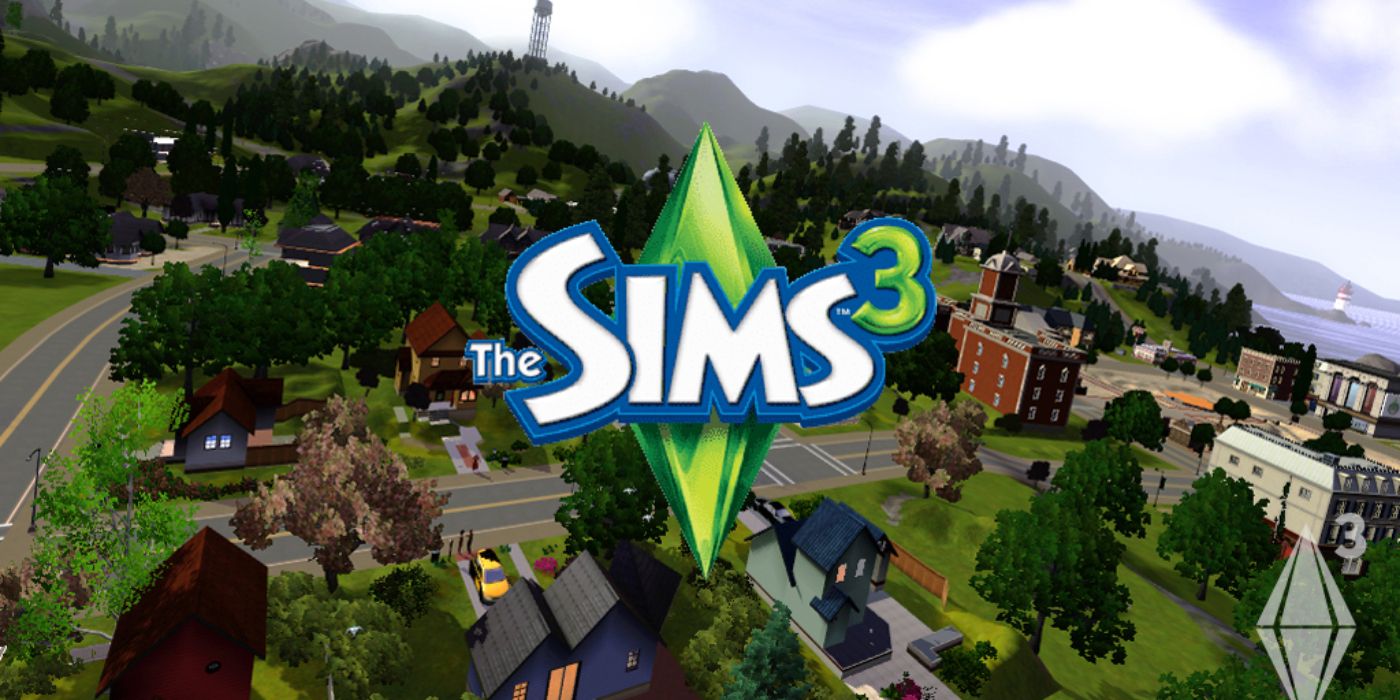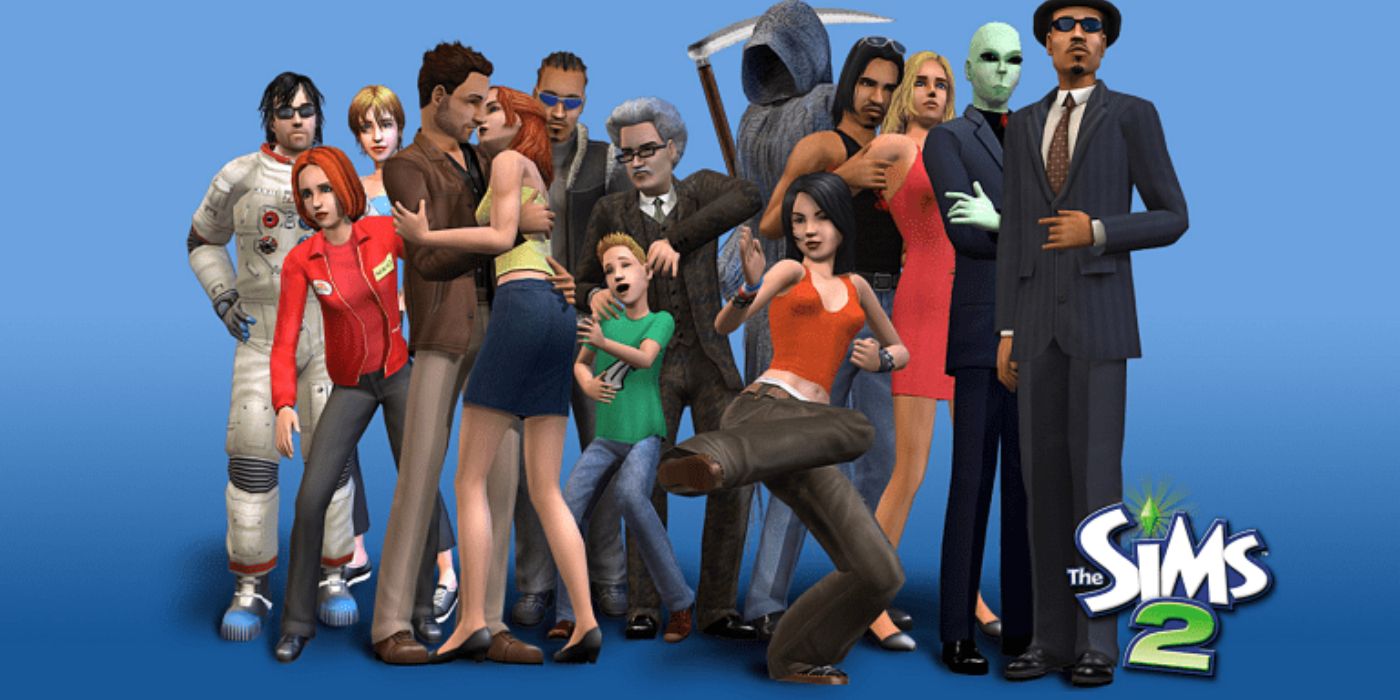Although every game in The Sims franchise has the same premise, the four core titles that have shaped the series each have unique qualities and issues that make them better or worse than the others. Many features were scrapped or replaced during entries, with all of these titles attempting to provide upgrades from the last and overcome limitations that might have existed. And now, with The Sims 4's base game becoming free forever, there's an opportunity to make a definitive ranking.
The first The Sims game enjoyed breakout success, and its unique premise and mechanics allowed it to create an extensive fanbase that wanted more games like it. Because of this, three other games came as its successors, preserving the core premise that made the first so enjoyable, but improving and upgrading its main mechanics and features. However, they are also different from one another, because these games also created their own varied systems. Each Sims game is ultimately unique, and one of them is better than the rest.
Other than the mainline four games, numerous entries were made in The Sims franchise with premises that diverge from the original. The Urbz: Sims In The City, for example, is so popular that many think that The Sims 5 should be The Urbz 2 instead, but it mainly surrounds living in the city, with a third-person camera and unique features and locations. Because of this, these spin-offs and side entries were not considered in the making of this ranking, since it wouldn't be a fair comparison otherwise.
#4 - The Sims
The series’ original installment, The Sims, was the first to present the premise that defined every single entry after it. It remains a nostalgic part of the early 2000s, with quirky features that made it stand out and be dearly remembered even 22 years after its initial release. The Sims also has a great mix of realism and fantasy, allowing players to not only recreate real life, but also experience ridiculous scenarios, like speaking to genies or creating fires out of poor attempts at cooking. This created one of the core aspects of the franchise, and there are even more fantastic scenarios in later entries like The Sims 4, which lets players become werewolves.
However, The Sims had some of its main mechanics extremely limited by the technology of the time and the budget it was made with, which negatively impacted features like creating characters and building houses. One of its biggest issues of the game is the lack of variety in skin color and body types for Sims, which is mostly due to how the character creation process worked in The Sims. Luckily, its successors upgraded these mechanics, allowing for a more reliable and fun way to customize every aspect of the game.
#3 - The Sims 4
The Sims 4 is one of the most controversial entries of the series, because while it did present improvements from its predecessors, it still lacks many of the features that made the first three installments unique in their own ways. While some of them are being reintroduced to the game, such as the Wants & Fears System received by Sims 4 in a recent patch, there are still many other mechanics that were scrapped in this release. The Sims 4 still doesn't have some of the most beloved features from previous games, such as world creation, color wheels, an open world, cars, the memory-keeping system, and babies who could leave their cribs. Because of this, it often feels like a downgrade from titles like The Sims 3 and The Sims 2.
However, The Sims 4 shines in its expanded customization mechanics, like Create A Sim and Build & Buy, which allow the players to easily customize their entire surroundings easily. They are also extremely user-friendly and well-optimized, becoming some of its most beloved features. There are also has constant updates which add new items to Sims 4, introduce new features, or fix annoying bugs and glitches. Not only that, but it has recently become free to play, making it one of the most accessible games of the entire franchise.
#2 - The Sims 3
The Sims 3 is one of the best and most beloved games of the franchise, having managed to not only solve jarring, game-breaking issues of the previous installments, but also add plenty of new content for fans to enjoy. It has an expanded customization system with a color wheel that allowed players to apply their creativity to nearly every single one of the game’s assets. It’s also the only Sims title with a working open world, which not only allowed players to place down more lots in each world, but also made previous mechanics, such as cars, become inherent to its experience. The Sims 3 also had plenty of options and activities for Sims to do and players enjoy, with a strong base game that became even better when combined with some of its DLC, such as The Sims 3: Generations and The Sims 3: Ambitions expansion packs.
However, The Sims 3 has a severe issue in optimization that makes the game difficult to run on most computers and contributes to bugs. When combined with certain DLC content, such as many expansion packs in one turn, it can take hours to load a map, crash while saving and destroy all progress players have made in a flash, or even completely shut down a computer. This title of The Sims franchise is often terrorized by bugs, but that doesn’t make it less of a great game with a unique experience that heavily improves upon previously established boundaries and features.
#1 - The Sims 2
Initially released in 2004, The Sims 2 shined in how it made the original Sims even better. Not only there was a significant graphical update, but the second installment of the franchise also improved on several limited features of the first. Creating unique characters that represented players became possible, with The Sims 2 abandoning the previous model for character creation and using tools to customize items and other assets, which made it much more intuitive. It also introduced new features and content that gave more depth and personality to the characters, such as wants, fears, memories, and chemistry.
Because of its qualities, The Sims 2 still remains delightfully nostalgic, while being one of the most influential titles of the franchise. It helped to define the image of a lively neighborhood and characters full of personality, making some of its features become commonly requested by players and considered essential for a proper life simulation experience. If the next installments of The Sims franchise base themselves on what made this title so great, players are bound to have interesting experiences while playing.

